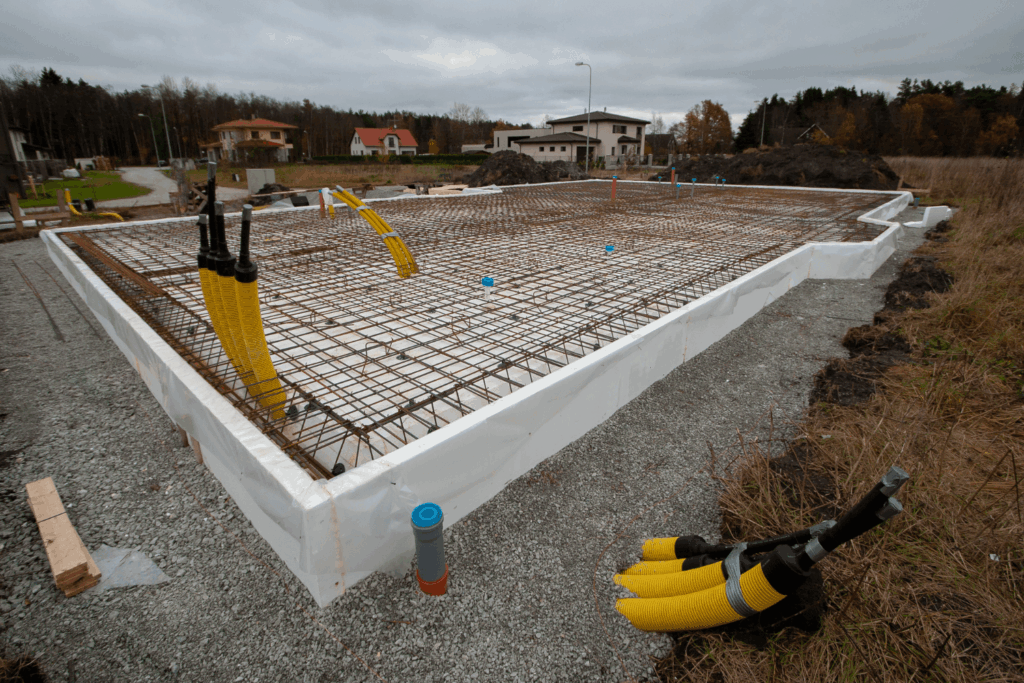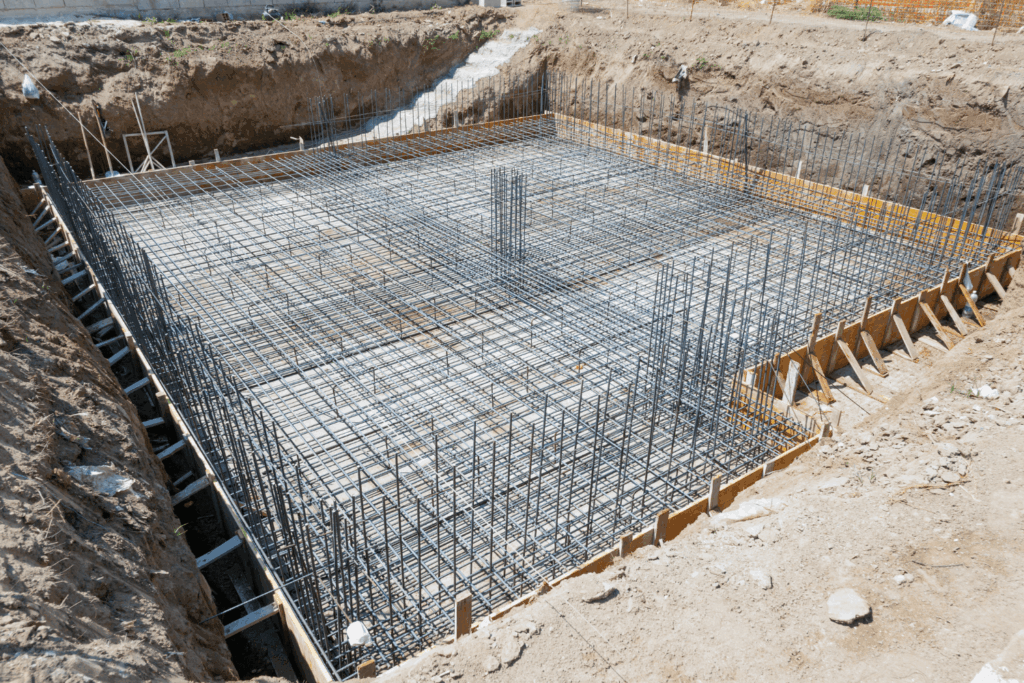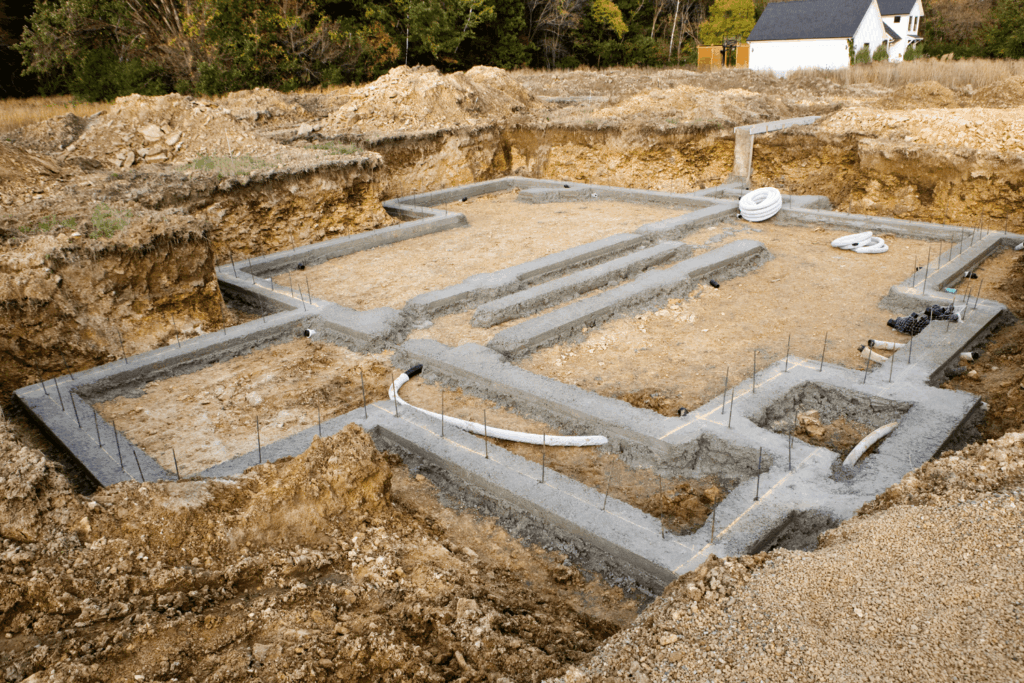The soil composition on which your home is built plays a large role in your foundation’s natural stabilization and strength over time. To most homeowners, the soil is just dirt to dig in, plant in, or displace when we want to upgrade parts of our property with accessory structures. It’s also meant to provide the support needed to maintain a safe, habitable structure, but that relies on the proper soil makeup and preparation by the excavation crew, who got the land ready for your home’s construction. We’re proud to offer professional excavation services that get your land ready for the home of your dreams.
Why Soil Composition Matters
Think of soil composition as a balancing act that lays a foundation for your foundation. Soil comprised of larger particulates may be overly loose, hard to compact, and leave enough space for icing and thawing to create large voids. On the other hand, fine particulate matter may not allow enough space for proper moisture drainage; instead, it traps water against your foundation walls. Whatever the composition, the land will also need to be properly prepared–including excavating and compacting–to ensure the soil is ready to provide the foundation stabilization you need.
Types of Soil Composition

Clay Soil
If your soil composition has a lot of clay in it–which is fairly common across the United States–then it’s made up of older soil particles that have been worn down over time, resulting in very small particles that tend to clump or compact together. When it gets wet, clay expands, and it can be slow to release that moisture for drainage. This leads to swelling during rainy seasons or if there’s a lot of snow and ice melt. Conversely, once it gets really dry, as in a drought, it can contract, leaving large and uneven voids. Over time, this cycle of expansion and contraction can create weak places of support and water-holding pockets under and around your home’s foundation.
Silt
Silt soil compositions are made up of even finer particles, leading to greater water retention and more extreme shifts. Special care needs to be taken for soil and foundation stabilization to ensure your home has the support it needs for a long life.
Sand or Gravel
Comprised of larger particles, sand and gravel provide a stable base for your foundation that offers rapid drainage that minimizes soil shifting. It’s easy to excavate and prepare, and maintaining its stability with proper drainage can further enhance your home’s longevity. This makes it a popular substrate for new construction.
Loam
Another good soil composition to build on is loam, which is a mix of sand, silt, and clay. Properly prepared by the excavation team, it can provide great support, adequate drainage, and long-term stability.
Soil Preparation
Before you begin construction, when considering a new addition to your property, or if you’re having recurring foundation problems, a professional excavation contractor may be needed to prepare or repair your soil, depending on the composition.
- Removing Loose Soil – The looser, upper layers of soil will be removed to create the space for a new basement or slab. This uncovers the underlying layers that will support the home. Uncompressed soil components, including tree roots, stumps, and other vegetation that can leave weak spots or voids in the soil, will also be removed.
- Compaction – Before laying a foundation, the subsoil will be compacted to ensure it is firm and even for proper home stabilization. If necessary, footings may be dug and installed to provide more solid support to the foundation.
- Utilities and Drainage – Utility lines, drainage pipes, and other underground structures can be installed. These may include water, sewer, gas, electric lines, French drains, and drainage pipes running from your sump to an outlet point.

- Foundation Pouring or Construction – Whether you’re building your home on a basement, crawl space, or slab foundation, once it’s built, your excavation contractor still has work to do.
- Backfilling – The area around your foundation will be refilled with the appropriate soil composition to allow water to drain away from your foundation’s walls. This also provides much-needed support to your basement walls for foundation stabilization.
- Grading – Finally, the land around your home needs to be graded to create the proper angle of declination for surface water to drain away from your home. This means grading the land to drop an inch for every foot of distance from the house for at least the first 5-10 feet.
Working With a Professional Excavation Services Contractor
As one of Western Pennsylvania’s most trusted excavation contractors who work with both construction companies and private homeowners, we have a lot of experience working with Allegheny soil. There’s no cost to get a no-obligation quote from one of our specialists. They’ll talk to you or your home contractor about the property’s needs, take a look at your land, and provide a written estimate. Once you’re ready to get started, we handle everything related to the excavation.
That means we plan the project around your schedule, call 811 for markings, and pull any necessary permits before we get started. Once the machines start rolling, we work quickly and efficiently to get your ground ready for a new foundation, coordinating with the general contractor to make sure you get the foundation stabilization you need, proper drainage, and the correct grading to keep your foundation protected. For excavation services related to sewer lines or utility repairs, we even make sure new grass is planted to give your property a head start on restoring its lush, green lawn.
Get Professional Results from Foundation Specialists You Can Trust
We’re ready to help you with your new build, home addition, or repair project. With a dedicated and experienced excavation team that knows how to work with your soil composition, we can help ensure you’re building on land that’s been prepared to support your home. Schedule a free visit from an A.M. Wall Anchor & Waterproofing specialist today.

